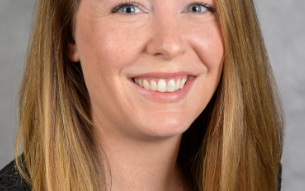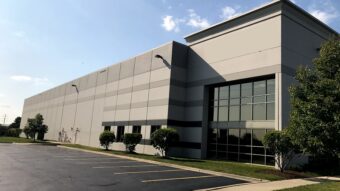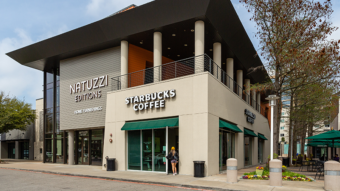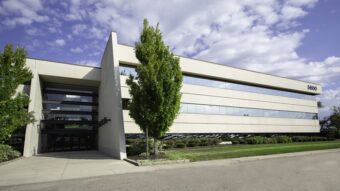According to John Joyce, Principal at Transwestern, typically fourth quarter is the best quarter each year historically—which is why he expects the remainder of the year to finish strongly in the O’Hare corridor.
“We have a lot that will close this year,” Joyce said. “So going into next year, it’s a little bit uncertain but the political climate has kind of swung in a more pro-business direction. Lower business taxes combined with the opening of the keystone pipeline should boost revenues for many small and mid-sized companies.”
“Lower fuel costs will reduce transportation costs, which should help growth in general,” he said. “Everyone’s aware that the cost of fuel right now is much lower than what it was. It may bounce back up, but right now that’s what it is.” Joyce noted that it’s been a great year based on where they were over the last seven years. “Although leasing volume is off slightly, sales volume is up slightly, and investment sales are definitely strong,” he said. “I expect that should continue to run through next year.”
What’s contributed to those strong investment sales? Joyce said a lot of outside investors want to be in Chicago.
“I think people still view Chicago as being inexpensive based on competing markets on the coast,” he said. “So Chicago’s relatively attractive at these levels. There has been some stagnation here, but there’s hope at this point that its turning and we’ll get a strong downtown economy. A lot of technology companies are here and growing, and there are plans to open additional sites. For example, Amazon has announced to open up same-day delivery centers.”
“We think the food sector is pretty strong here. So a lot of things are making Illinois, Chicago in particular, more attractive than it has been in the last few years.”
Recently, Joyce and Chris Rickett, an associate at Transwestern, represented 6021 Associates LLC in the disposition of a 55,204-square-foot building at 850 N. Milwaukee Ave. in Vernon Hills, Illinois.
“One of our industrial investors had an office building in Vernon Hills that we took on as a leasing assignment, and we ended up selling the property to Centrum Partners,” Joyce said. “Our client agreed with our strategy to reinvest the proceeds and diversify its in-state portfolio out-of-state.”
“We also recently closed on a cross-dock truck facility with corporate offices,” he added. “It has a long-term lease in place, with a credit tenant. And that cross-dock facility is institutional grade investment. So although we work primarily in the O’Hare corridor, some of our clients have assets elsewhere which we can service just as well.”
Joyce noted having a team in place being able to take on that assignment led to a nice investment sale in a reinvestment.
“So it kind of goes along with investment sales are strong, even though leasing is off a little bit, we’ve been able to make up for it with a nice investment sale—which isn’t our bread and butter—but something that we can do.”
According to Colliers International Research & Forecast Report Q3 2014, O’Hare’s third quarter vacancy rate registered a 64-basis-point decline from the second quarter rate of 7.64 percent to 7 percent, and noted that a heightened third quarter leasing volume contributed to the improvement.
“That’s pointing in the right direction,” Joyce said. “Vacancy rates 7 percent, and it jumped as high as 12 to 13 percent. A lot of that’s based on employment. The question is will this area be able to produce the skilled employees needed for these manufacturing and distributing jobs in the area?”
He continued, “There’s definitely demand for employment here, but do we have the people to fit these positions? That’s kind of an unknown. So I think what the vacancy rate will hinge upon is do we have the people in place to fill them? Or do they have to be sourced from elsewhere and brought in, which would slow the growth.”
The O’Hare market was home to another redevelopment project in the third quarter, according to Colliers report. Liberty property Trust razed a 289,900-square-foot manufacturing plant at 333 Howard Avenue in Des Plaines, and will replace it with a 235,800-square-foot speculative warehouse/distribution facility. The building is set for completion the second quarter of 2015.
“I was at the groundbreaking ceremony with Don Schoenheider, the regional head for Liberty, Joyce said. “That’s going to be a state-of-the-art manufacturing, potentially distribution, facility. I think it’ll be 32-foot clear. That’s kind of like the future of our area. The rents to support those types of spaces might not be here just yet, but if the growth continues the way it is pointing, those $6.50 to $7.00 net buildings will begin to lease.”
Earlier this year, Joyce and his partners sold their firm, Newmark Knight Frank Epic to Transwestern.
“I think it speaks to the stabilization of the brokerage industry where firms are merging together to have a national or global presence,” Joyce said. “Our 21 brokers made the move to Transwestern in January, and since then we’ve continued to be a full-service national platform. Transwestern was the best fit for us as they’re committed to industrial in the Midwest.”
“So our hope is that we can help fill these new seven to eight million square feet of spec development spaces that are going up,” he added. “”These are buildings we’d like to put some of our clients in, like Liberty’s property on Howard Avenue. That’s how we’re positioning ourselves to be a part of that growth and be connected to the spec development that’s underway.”
According to Joyce, in O’Hare there are a lot of functionally obsolete buildings that the clear heights are not keeping pace with the technology and loading capabilities.
“A lot of those buildings are being scraped and redeveloped,” Joyce said. “Spec development is back, so land prices have gone up. Leasing rates are up a little bit—not a lot. In Chicago, basically the rents don’t ever go too low, but they don’t really grow that much.”
“It’s kind of a stable market because of such a large business space here, and huge population base,” Joyce continued. “So that’s how I see it—new buildings are being built and we want to be a part of filling them.”



